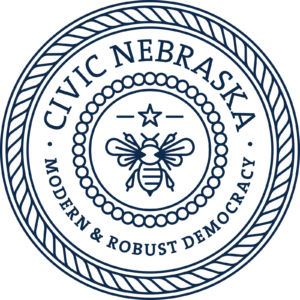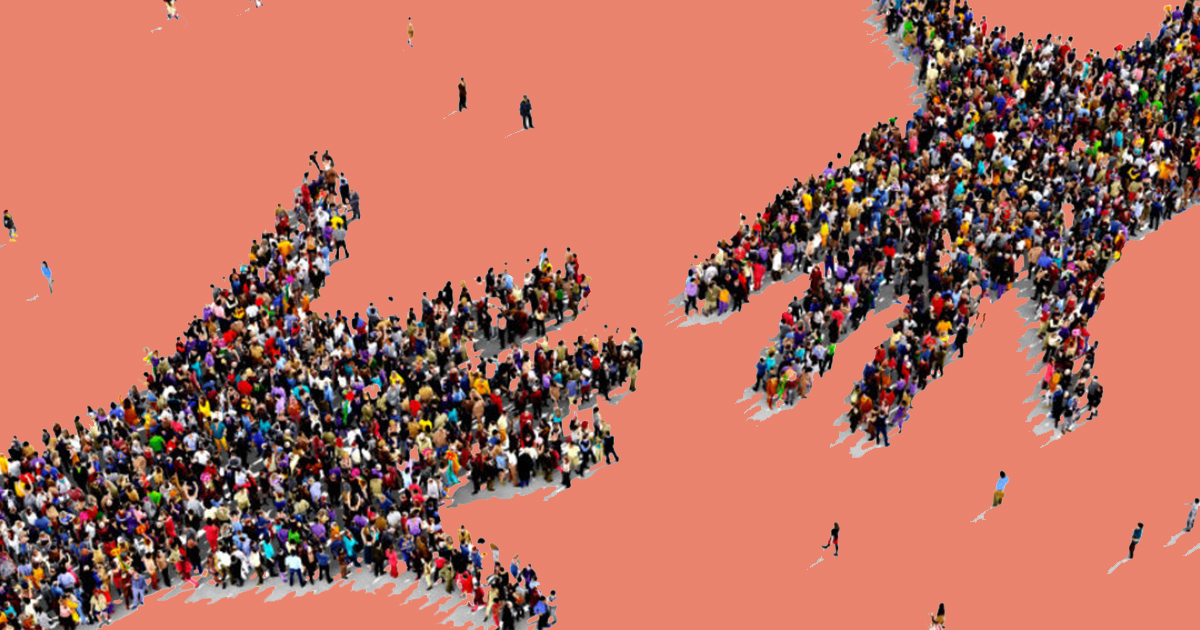We use the word democracy quite a bit at Civic Nebraska. It’s in how we talk about our values and our mission; it’s also reflected in our logo and in our organization’s tagline: Building a more modern robust democracy for all Nebraskans.
In the current political environment, that may give some people pause: We’re a Republic!, we often hear. Democracy would be mob rule!
Beyond being a wee bit hyperbolic, such sentiments also miss the main thrust of our devotion to the concept of democracy. The way we see it, democracy is not only a noun that describes a system or defines a government structure. We often think of it as an action word – as in practicing a set of substantive values year-round.
In America, self-government goes beyond elections. It has to. For centuries, our country has created civic power out of nowhere, with everyday Americans joining different causes to bring about change. Our high participation rates in our voluntary organizations, from the local to the national level, has been the secret ingredient. Our democratic resilience isn’t derived from Congress or the Legislature, but from our relentless habit of constantly practicing it, all across the land.
Yep. Democracy is a verb.
These voluntary connections must persist. We must continue to identify issues collectively, share responsibility, set mutual goals, collaborate, and foster a sense of community. Because without these actions, we can’t create a modern and robust democracy.
At Civic Nebraska, we work to organize our communities to define and address public problems. The ones that do this tend to have stronger civic health – higher employment rates, stronger schools, better physical health, and more responsive governments. Not coincidentally, they also feature a multitude of ways for average citizens to come together to tackle an issue, provide care for others, or practice an intentional brand of citizenship.
This happens with strong nonprofits, clubs with deep member benches, engaged associations, and active social movements. This tapestry of civic institutions empowers people to build and express collective interest and energy. As small-d democrats, it’s our duty to focus our time, talent, and treasure on joining other agents of democracy – organizations, associations, movements – that activate a community’s popular hopes and desires.
With every neighborhood clean-up, we demonstrate that taking responsibility for our environment is taking responsibility for our community’s health, safety, and fortune.
Every time we volunteer at a local school, we help build the next generation of active, educated, critically thinking Americans.
With every donation – clothes, food, money, blood – we give of ourselves to help our fellow Americans.
When we support groups working to improve the quality of life for others, we invest in our community’s long-term civic health.
When we hold voter registration drives, march, or protest, we build relationships, trust, and civic power that strengthens democracy.
We don’t have to be nonstop activists. But if each of us resolves to step out of our private worlds and focus on the common good, it can be both our duty and our joy to tend to the needs within our Republic. And we go a long way toward leaving a more vibrant democracy for the next generation.



